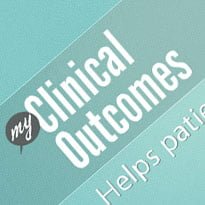Two doctors have launched a web-based system to collect patient reported outcome measures and have signed up GPs, consultants and GP commissioners to use it.
MyClinicalOutcomes has been designed and built by medic brothers Tim and Dan Williams.
Dr Dan Williams, a consultant hip and knee surgeon at the Royal Cornwall Hospitals Trust, become interested in collecting outcomes data for patient management and research, but could not find a system to meet his requirements.
Dr Tim Williams told eHealth Insider that the pair wanted a system that went further than the national PROMS programme launched in 2009.
He added: “The national programme is pen and paper-based, and collects data on four procedures at two points. At the moment, the information is fed back at organisational level only, and can take up to six or nine months.
“We think that system has merits, but we wanted something that would address the gaps by collecting data much more often, on a wider list of procedures, and making it available instantly at a named clinician level.”
The result was the creation of myClinicalOutcomes, which covers all orthopaedic subspecialties and all orthopaedic procedures as well as rheumatology conditions. There are plans to expand to other conditions eventually.
Patients can register on the site at any stage, either at referral or before, when they are asked to enter basic demographic information, select their primary and secondary care doctors and their treatment from a tailored list. They are also asked to complete condition-specific and general scores of well-being.
Once registered, and with consent, surgeons can validate the patients’ treatment information and then monitor them remotely.
Following registration, patient-reported outcome measures are collected every three months, with email reminders sent to patients to complete their assessment. When they complete their assessment, each patient receives feedback on their account dashboard screen.
Dr Williams said the system meant surgeons could quickly identifying patients with low or rapidly deteriorating scores and call them for review if necessary, as well as giving them an overview of their entire patient cohort.
He said patient-identifiable data is double encrypted and the Information Commissioner Office’s has approved the data entry process, as well as the security system and the storage of data on servers that meet NHS N3 network standards.
So far 700 patents are registered on the site, many of whom are seen by surgeons at the Royal Cornwall Hospitals Trust where all 20 orthopaedic consultants in the orthopaedics directorate use the system.
Patients are encouraged to register by clinicians and the trust includes a message asking patients to register on letters that it sends out, such as first outpatient attendance invitations.
The system has also begun to be used by the Duchy Hospital, a private hospital in Truro, and is being promoted by the charity Arthritis Care.
The site is also to be used by the Kernow Clinical Commissioning Group as part of its new pathway for patients seen by the orthopaedic department.
As part of the pathway, consultants have agreed to a standardised follow-up regimen for hip and knee surgery patients. All patients will be reviewed once as standard, with others encouraged by their GP to register regular scores with the site remotely. Deteriorating PROMs scores, in combination with follow-up x-rays reviewed by the surgeon, will flag those needing further face-to-face review by the surgeons.
Dr Williams added: “Patients can initially be sceptical, but once they are using the site we have found they become very engaged. They inherently understand the questions, such as whether they have pain at night or how far they can walk on the flat, and want to answer them.”
Plans for the future include developing the site to make it as useful as possible to patients and doctors and adding more conditions in association with clinicians in other specialties.

